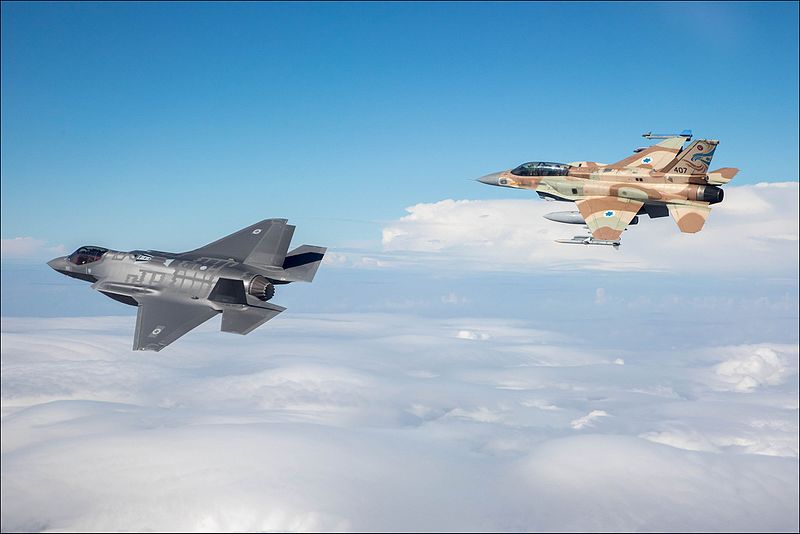Although details remain sparse, Israel has announced that the long-touted F-35 has officially seen combat for the first time anywhere in the world.
Israel was not one of the original nine partner nations that helped to fund the F-35s development but is among the three foreign military sales (FMS) customers for the platform — and is now the first nation ever to use the F-35 in combat operations.
On Tuesday, Maj. Gen. Amikam Norkin, Commander of the Israeli Air Force, announced that the F-35, which was recently dubbed the “Panther” by test pilots, had already seen combat on at least two occasions, though he declined to specify which.
“The F-35 squadron has become an operational squadron. We are flying the F-35 all over the Middle East and have already attacked twice on two different fronts.” He said.
Norkin’s statements, made before senior officers from several other nation’s militaries during a conference in Herzliya, were accompanied by images of an F-35I flying over Beirut, Lebanon. According to Norkin, the F-35 did not participate in the most recent high-profile series of strikes in Syria against Iranian Islamic Revolutionary Guard elements
Soon after General Norkin made the announcement, the official Twitter account for the Israeli Air Force quoted him, calling Israel the only nation in the world to carry out an “operational assault” with the F-35.
Translated, the tweet reads roughly: “‘Jets are already operational and fly to operational missions.’ We are the first in the world who carried out the first operational assault on F-35.”
Israel has received nine F-35Is thus far, out of an anticipated order of as many as 75. In Israel, the advanced fighter is known as the “Adir,” which translates to “Mighty.” The F-35I is specific to Israel but bares little functional difference to the American F-35A variant, which takes off and lands using conventional air strips.
Already have an account? Sign In
Two ways to continue to read this article.
Subscribe
$1.99
every 4 weeks
- Unlimited access to all articles
- Support independent journalism
- Ad-free reading experience
Subscribe Now
Recurring Monthly. Cancel Anytime.
The F-35 has drawn a number of American headlines in recent months, as concerns about the immense costs associated with the production and maintenance of the air craft have spurred continued debate, exacerbated by corrosion issues that, at one point, prompted the American government to order a temporary halt to accepting more aircraft from Lockheed production facilities. Ultimately, the Defense Department and Lockheed Martin came to an agreement regarding who would be responsible for paying for repairs required on nearly all previously delivered F-35 platforms due to the previously undiagnosed corrosion issue, though thus far, they have remained tight lipped as to how that cost was split.
Further complicating matters for the F-35 stateside were a series of troubling reports indicating that not only were nearly half of all delivered F-35s considered non-operational, but the high cost of keeping the operational planes in the air may be forcing the Air Force to reduce their projected orders of the fighter by as much as a third. Currently, Lockheed and Air Force officials are amid discussion on how to reduce these operational costs, seeing as Lockheed Martin is also contracted to provide the vast majority of support for the platform, despite offering very little transparency on their justification for the exorbitant costs.
However, despite the slew of bad press the aircraft has received in recent months, Israel’s claims of successful combat operations in contested air space could be the beginning of a new era: one in which the F-35 starts living up to its hype, rather than slouching behind its superlative moniker as the most expensive weapons platform ever developed.
Only time will tell.
Image courtesy of Wikimedia Commons










COMMENTS